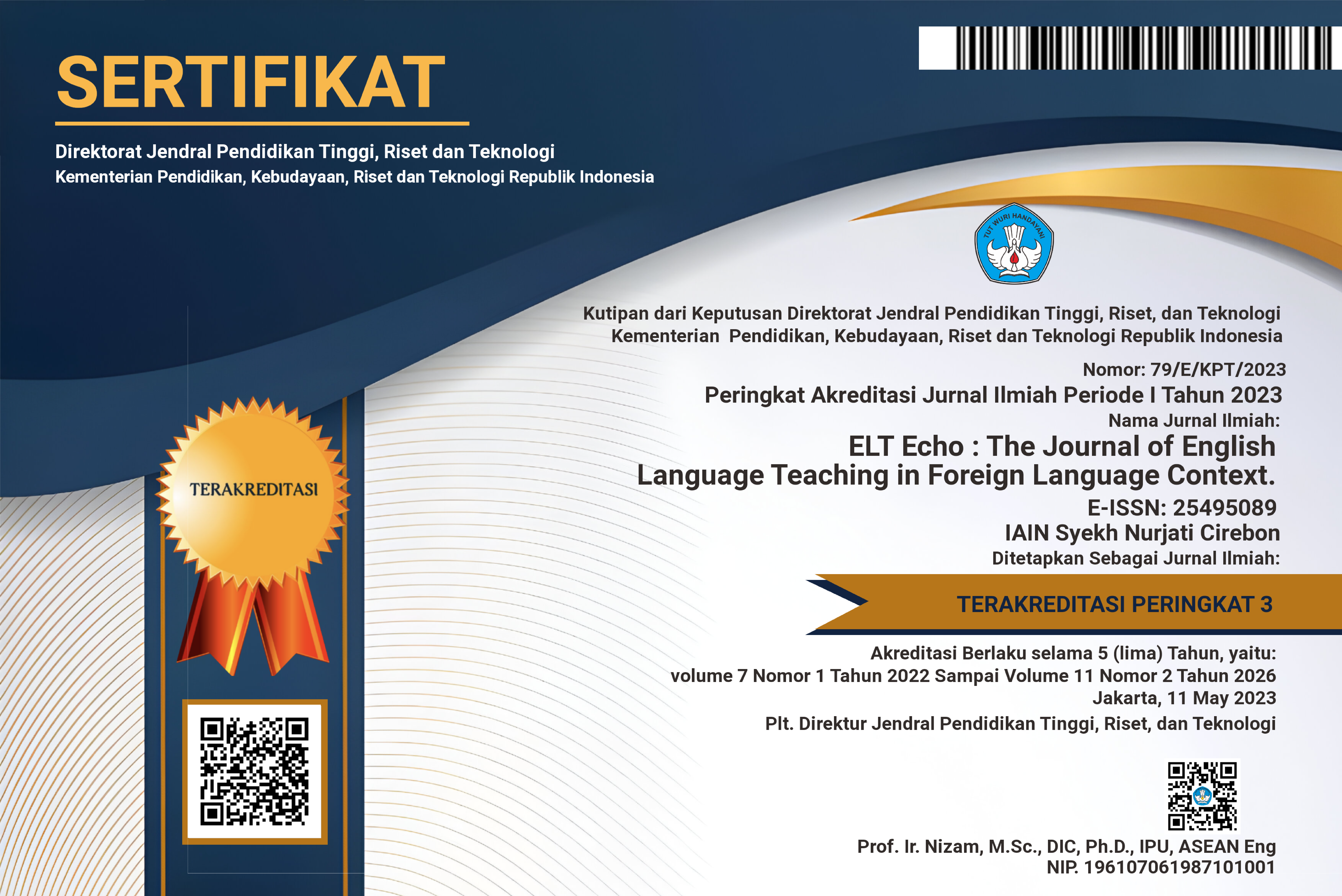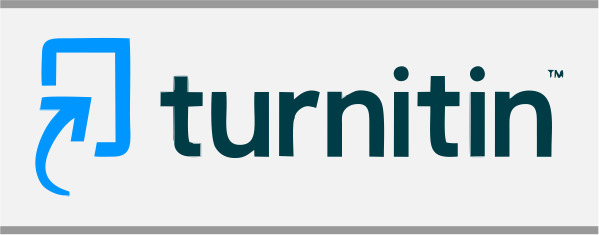Using Quizizz in Improving Students’ English Learning Outcomes of Narrative Text
(1) Universitas Sriwijaya
(2) SMAN 11 Palembang
(3) Universitas Sriwijaya
(*) Corresponding Author
Abstract
Keywords
Full Text:
PDFReferences
________. (2003). Undang-Undang Nomor 20 Tahun 2003 Tentang Sistem Pendidikan Nasional. Jakarta.
Depdiknas. (2004). Kurikulum 2004. Standar Kompetensi Sekolah Dasar. Jakarta: Depdiknas.
Inderawati, R. (2017). The dynamics of EFL teaching in Indonesia: Be innovative teachers through social media. English Language Teaching and Research, 1(1).
Inderawati, R., Petrus, I., & Jaya, H. P. (2019). Exploring and identifying technology-based dynamic learning through social media in academic writing. English Community Journal, 3(1), 317-324.
Johnson, A. P. (2008). Teaching reading and writing: A guidebook for tutoring and remediating students. R&L Education.
Latifa, N., & Manan, A. (2018). Teaching narrative text by using preview, question, read, state, and test (PQRST) technique. English Education Journal, 9(2), 243-260.
Maryam, A.S. (2021). Strategi Pelaksanaan Pembelajaran Berdiferensiasi. Retrieved June 12, 2023, from https://ayoguruberbagi.kemdikbud.go.id/artikel/stategi-pelaksanaan-pembelajaran-berdiferensiasi/ .
Mei, S. Y., Ju, S. Y., & Adam, Z. (2018). Implementing Quizizz as Game Based Learning in the Arabic Classroom. European Journal of Social Science Education and Research, 5(1), 194-198.
Muliya, M. (2022). Penerapan Media Quizizz Dalam Meningkatkan Hasil Belajar Siswa Pada Mata Pelajaran Bahasa Indonesia Kelas X Busana 2. ENGGANG: Jurnal Pendidikan, Bahasa, Sastra, Seni, dan Budaya, 3(1), 65-78.
Priyanti, N. W. I., Santosa, M. H., & Dewi, K. S. (2019). Effect of quizizz towards the eleventh-grade English students’ reading comprehension in mobile learning context. Language and Education Journal Undiksha, 2(2), 71-80
Purba, M. (2021). Prinsip Pengembangan Pembelajaran Berdiferensiasi. Pusat Kurikulum Dan Pembelajaran Badan Standar, Kurikulum, Dan Asesmen Pendidikan Kementerian Pendidikan, Kebudayaan, Riset, Dan Teknologi.
Ramadhany, T., Koryati, D., Deskoni. (2015). Analisis model dan media yang digunakan oleh guru pada mata pelajaran Ekonomi di SMA se-kecamatan Indralaya. Jurnal Profit, 2(1).https://ejournal.unsri.ac.id/index.php/jp/article/download/5532/2971.
Rekola, S., & Savo, K. (2018). Using Electronic Materials in The Efl Classroom: 8th Graders’ Views on The Motivational Aspect of E-Materials. Bachelor’s thesis, University of Jyväskylä.
DOI: 10.24235/eltecho.v8i1.14055
Article Metrics
Abstract view : 56 timesPDF - 13 times
Refbacks
- There are currently no refbacks.
Â
This Journal is indexed by:
Â

This work is licensed under a Creative Commons Attribution 4.0 International License.










